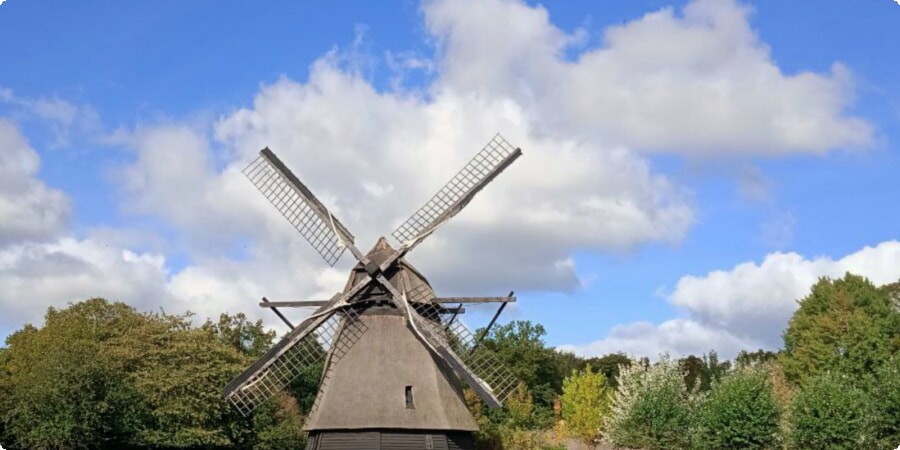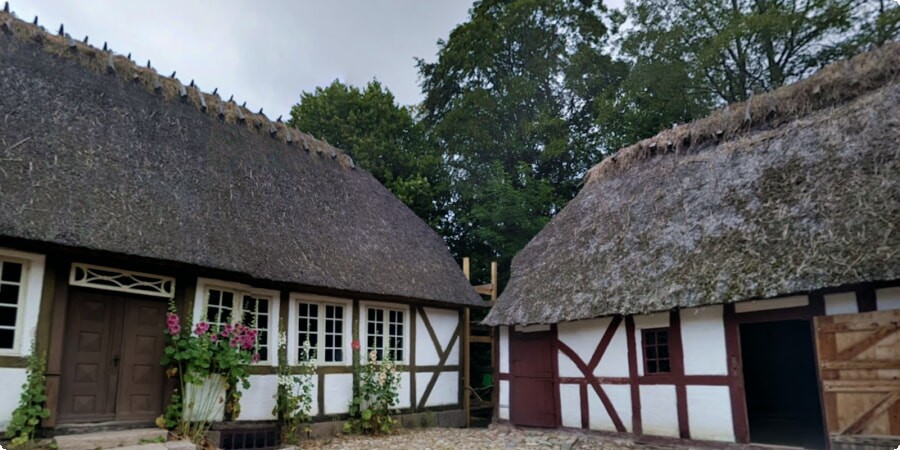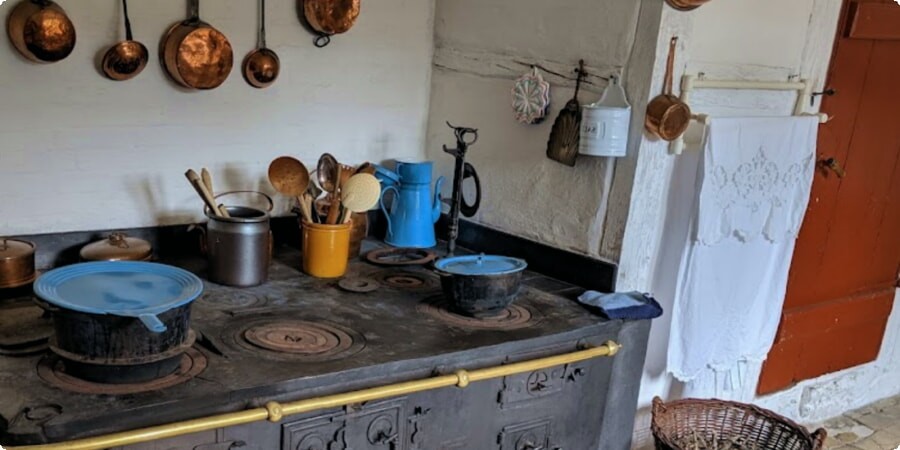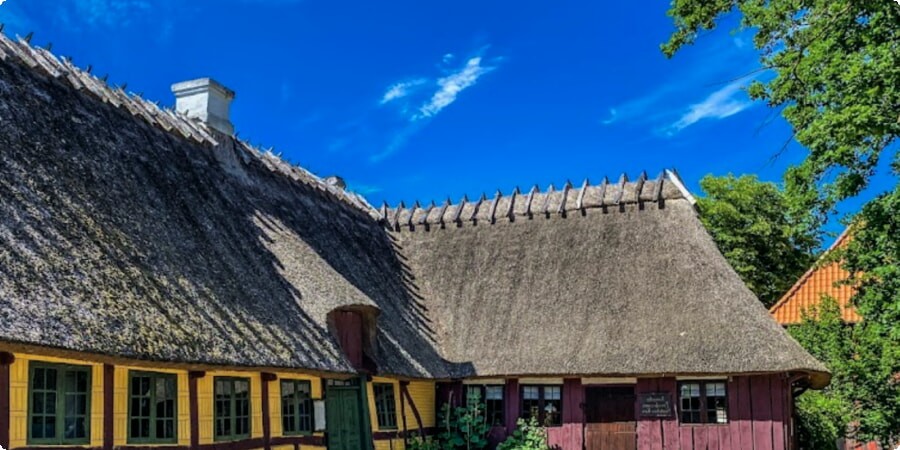Exploring The Funen Village: Step Back in Time in Odense
Welcome to The Funen Village, where time stands still, and history comes to life. Nestled in the heart of Odense, Denmark, The Funen Village is a unique living museum that offers visitors the opportunity to step back in time and experience Danish rural life through the ages. As you wander through the charming cobblestone streets and rustic buildings of the village, you'll find yourself transported to different periods of Danish history, from the Middle Ages to the 19th century. With its authentic architecture, immersive exhibits, and picturesque surroundings, The Funen Village is a must-visit destination for anyone interested in exploring Denmark's rich cultural heritage.
History of The Funen Village
The story of The Funen Village begins in the late 19th century when Danish historian H.C. Andersen (no relation to the famous author) envisioned a place where Denmark's rural past could be preserved and celebrated. In 1942, his vision became a reality with the opening of The Funen Village, also known as Den Fynske Landsby in Danish. Since then, the museum has grown and evolved, becoming one of Denmark's premier cultural attractions.
The mission of The Funen Village is to provide visitors with a glimpse into the daily lives of rural Danes throughout history. The museum meticulously recreates historical buildings and landscapes, offering a window into the past and preserving Danish cultural heritage for future generations. Today, The Funen Village is a living museum where visitors can explore traditional farmhouses, workshops, and gardens, and interact with costumed interpreters who bring history to life.
Architectural Heritage
One of the most striking aspects of The Funen Village is its architectural heritage. The museum is home to a diverse collection of traditional Danish buildings, each representing a different period of history and architectural style. From timber-framed farmhouses to thatched cottages, the village's architecture reflects the changing tastes and lifestyles of rural Danes over the centuries.

One of the highlights of The Funen Village is the H.C. Andersen House, a historic farmhouse dating back to the early 19th century. Named after the famous Danish author who grew up in Odense, the house offers a fascinating glimpse into Andersen's childhood and the rural life of the time. Visitors can explore the rooms where Andersen lived and played, as well as learn about the agricultural practices and domestic life of the period.
Another notable building in The Funen Village is the Water Mill, a beautifully preserved example of traditional Danish architecture. Built in the 18th century, the mill still operates today, grinding grain and producing flour just as it did centuries ago. Visitors can watch as the mill's wooden gears and water wheel turn, marveling at the ingenuity of Denmark's rural craftsmen.
For travelers planning to explore Odense and its surroundings, renting a car offers the flexibility and convenience needed to discover all that this charming city has to offer. Consider booking a car rental at Copenhagen Airport through this link for a hassle-free travel experience.
Explore The Funen Village on Google Maps
Learn more about The Funen Village on Wikipedia
Daily Life in The Funen Village
At The Funen Village, visitors have the opportunity to experience the daily life of Danish villagers throughout history. The museum's immersive exhibits and costumed interpreters offer a glimpse into the past, showcasing traditional crafts, farming techniques, and domestic activities.
One of the highlights of a visit to The Funen Village is the chance to see traditional artisans at work. From blacksmiths forging iron tools to weavers crafting textiles, the village is a hub of activity where visitors can witness firsthand the skills and techniques that sustained rural communities for generations.

For those interested in agriculture, the museum's working farm provides insight into the challenges and rewards of rural life. Visitors can watch as farmers tend to livestock, plow fields, and harvest crops using traditional methods. The farm also features historic breeds of animals, preserving Denmark's agricultural heritage for future generations.
Throughout the village, costumed interpreters bring history to life, portraying villagers from different time periods and engaging visitors in conversation about their lives and experiences. Whether you're chatting with a medieval peasant or a 19th-century shopkeeper, these interactions offer a deeper understanding of Danish culture and history.
Interactive Experiences
One of the unique aspects of The Funen Village is its emphasis on hands-on, interactive experiences. Visitors of all ages can participate in workshops, demonstrations, and activities that offer a deeper understanding of Danish rural life.
For budding artisans, the museum offers workshops where visitors can learn traditional crafts such as pottery, woodworking, and candle making. Under the guidance of skilled craftsmen, participants can create their own souvenirs to take home as a memento of their visit.
Food enthusiasts will enjoy the museum's cooking classes, where they can learn to prepare traditional Danish dishes using fresh, seasonal ingredients. From hearty stews to delicate pastries, these classes offer a taste of Denmark's culinary heritage.
For families with children, The Funen Village offers a range of educational activities and games designed to entertain and inspire young minds. Whether it's milking a cow, planting a garden, or dressing up in period costumes, there's something for everyone to enjoy at the museum.

Cultural Events and Festivals
Throughout the year, The Funen Village hosts a variety of cultural events and festivals that celebrate Denmark's rich heritage. From medieval fairs to harvest festivals, these events offer a unique opportunity to experience Danish traditions and customs in a fun and festive atmosphere.
One of the highlights of the museum's calendar is the annual Midsummer Festival, held in June to celebrate the summer solstice. Visitors can enjoy traditional music, dancing, and feasting, as well as participate in rituals such as the lighting of bonfires and the weaving of flower wreaths.
In the autumn, The Funen Village comes alive with the Harvest Festival, where visitors can join in the seasonal festivities and learn about traditional farming practices. From apple pressing to scarecrow making, there are plenty of activities to enjoy, as well as delicious food and drink to sample.
For travelers looking to explore more of Denmark's cultural heritage, renting a car provides the flexibility to visit other attractions and destinations across the country. Consider booking a car rental in Denmark through this link for a convenient and hassle-free travel experience.
Nature and Surroundings
While The Funen Village offers a fascinating glimpse into Denmark's rural past, its natural surroundings add to the charm and beauty of the museum. Situated on the picturesque island of Funen, the village is surrounded by rolling hills, lush forests, and scenic countryside.
The museum's grounds are meticulously landscaped to recreate the bucolic landscapes of rural Denmark, with meandering paths, tranquil ponds, and vibrant gardens. Visitors can stroll through orchards filled with fruit trees, wander along flower-lined pathways, and relax in shaded groves, enjoying the sights and sounds of nature.
Birdwatchers will appreciate the diverse avian species that inhabit the area, from songbirds and waterfowl to birds of prey. The museum's bird hides offer a secluded vantage point for observing wildlife in its natural habitat, making it a favorite spot for nature enthusiasts and photographers alike.
For those who prefer more active pursuits, The Funen Village is surrounded by scenic hiking and biking trails that wind through the countryside, offering breathtaking views of the island's rolling landscapes and historic landmarks. Whether you're exploring on foot, by bike, or simply enjoying a leisurely picnic, the natural beauty of Funen provides a serene backdrop for your visit to The Funen Village.

Visitor Experience
Planning a visit to The Funen Village is easy, thanks to its convenient location and excellent amenities. The museum is open year-round, with extended hours during the summer months, making it accessible to visitors from near and far.
Upon arrival, guests are greeted by friendly staff who provide information about the museum's exhibits, activities, and special events. The village features ample parking for cars and bicycles, as well as accessible pathways and facilities for visitors with mobility issues.
Admission to The Funen Village includes access to all exhibits, workshops, and demonstrations, allowing visitors to explore at their own pace and tailor their experience to their interests. Audio guides and guided tours are also available for those who prefer a more structured experience.
For those looking to enhance their visit, The Funen Village offers a variety of guided tours, workshops, and special events that provide deeper insights into Danish culture and history. Whether you're interested in learning about traditional crafts, sampling local cuisine, or experiencing seasonal festivals, there's something for everyone to enjoy at the museum.
In conclusion, The Funen Village offers a unique and immersive experience that allows visitors to step back in time and explore Denmark's rich cultural heritage. From its authentic architecture and interactive exhibits to its scenic surroundings and engaging activities, the museum offers something for everyone to enjoy.
Whether you're a history buff, a nature lover, or simply looking for a fun and educational day out, The Funen Village has it all. So why not plan a visit today and discover the magic of Denmark's rural past in the heart of Odense?